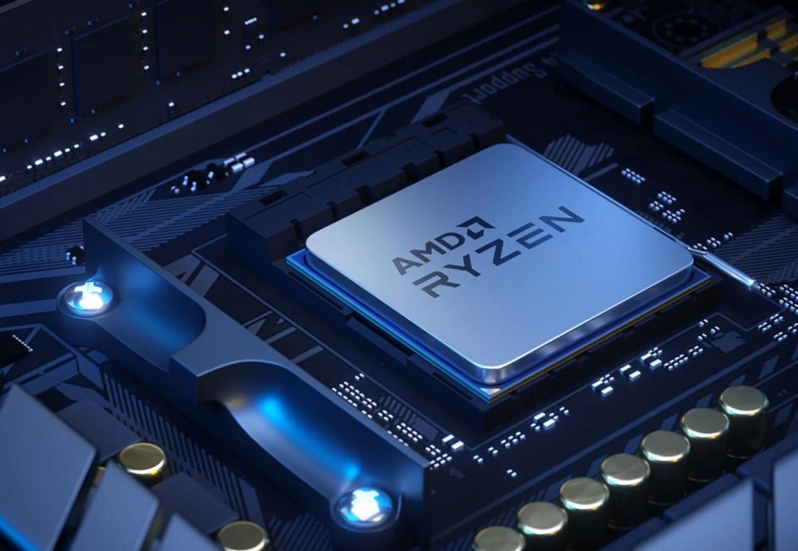Five things AMD just confirmed about their next-generation CPU platform
Five things AMD just confirmed about their next-generation CPU platform
Today, in a discussion between AMD’s Robert Hallock, Director of Technical Marketing, and John Taylor, AMD Chief Marketing Officer, has highlighted what’s next for AMD. This discussion confirmed that today’s AM4 socket is reaching the end of its lifespan and that a next-generation platform from AMD is coming.Â
While AMD will have new CPUs coming to AM4 in early 2022, next year will also see AMD introduce a new CPU platform that will support the company’s future Ryzen processors and several new features.Â
1. It’s Coming in 2022
It’s official, AMD’s next-generation CPU platform will be launching next year. While AMD has not stated when their next-generation CPU socket/platform will launch, it will likely launch in the second half of 2022.Â
Rumour has it that AMD’s next-generation CPU platform will be called AM5 and use an LGA-style socket. This platform will be the home of AMD’s Zen 4 processors and offer users next-generation features that aren’t available on AM4.Â
 Â
2. AMD’s next-generation socket will support DDR5 memory
AMD’s next-generation CPU platform will support DDR5 memory, a new memory type that promises to deliver more bandwidth than today’s DDR4 memory modules, higher levels of power efficiency, and other new technological improvements.Â
DDR5 not only promises higher MT/s rates than DDR4; DDR5 also promises higher levels of effective bandwidth thanks to DDR5’s many specifications-level changes, such as the standard’s larger burst length, Prefetch, and DDR5’s 2-channel DIMM architecture. Micron has stated that DDR5 can offer a 1.36x bandwidth boost over DDR4 when operating at the same speeds (DDR4-3200 VS DDR5-3200).Â
While Intel is adopting DDR5 this year with Alder Lake, AMD will be adopting DDR5 in 2022, when DDR5 availability is expected to be significantly improved. While Intel will be the first to support DDR5, it could be argued that AMD will be supporting DDR5 at the right time for PC builders.
3. PCIe 5.0 connectivity will also be available
AMD’s Robert Hallock has confirmed that AMD’s next-generation CPU platform will support PCIe 5.0. PCIe 5.0 delivers two times as much bandwidth as PCIe 4.0, enabling faster connectivity and insane data transfer speeds.Â
SSD manufacturers are already working on PCIe 5.0 SSDs, and there is no doubt that future graphics cards and other products will start to make use of PCIe 5.0’s increased bandwidth. If nothing else, PCIe 5.0 delivers overkill levels of bandwidth to PC builders, acting as a strong baseline for what could be another long-lived CPU socket from AMD.Â
 Â Â
 Â
4. AMD’s next-generation CPU platform will support today’s AM4-compatible CPU coolers
To support AMD’s next-generation CPU socket, you won’t need to throw out your existing AM4-compatible CPU cooler. Based on what Robert Hallock confirmed to us today, AMD will be using an AM4-style mounting system for their next CPU socket, allowing Ryzen users to reuse their CPU coolers for their next-generation Ryzen-based PC builds.Â
Contrast this with Intel, whose new LGA1700 socket necessitates the use of new CPU coolers or the acquisition of LGA1700 mounting kit upgrades for existing CPU coolers. AMD’s reuse of their AM4 mounting mechanism adds some simplicity to AMD’s next-generation platform/motherboard plans, which is excellent news for heatsink manufacturers and PC builders alike.Â
5. AMD’s V-Cache Enhanced Zen 3 Ryzen CPUs aren’t designed for AMD’s next-generation motherboards
AMD’s socket AM4 is not dead. AMD’s bringing 3D chiplet technology to AM4 with their next wave of Zen 3 processors. These CPUs will stack a layer of L3 cache onto AMD’s Zen 3 Ryzen processors to deliver a generational leap in performance across many applications.Â
AMD’s enhanced Zen 3 CPUs will launch in early 2022, with AMD’s V-Cache addition providing significant performance improvements in gaming workloads to Ryzen users. On average, performance gains of 15% are expected in gaming workloads, with AMD reporting performance gains as high as 25% in Monster Hunter World in DX11 mode.Â
With AMD’s next-generation CPU platform being reserved for future processors, it looks like users of AMD’s next-generation CPU platform could expect even larger performance gains in gaming workloads.Â
You can join the discussion on AMD’s next-generation CPU platform on the OC3D Forums.Â



